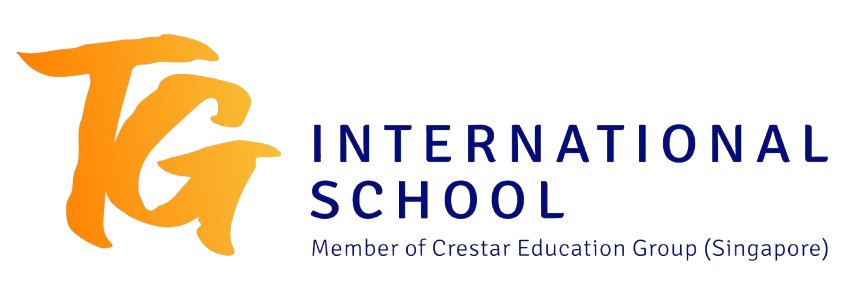Curriculum
- Home
- Curriculum
Singapore’s Kinderland Preschool Programme
CAMBRIDGE CURRICULUM
Cambridge International Primary Curriculum (Grade 1 - Grade 6)

Our primary curriculum offers a holistic learning experience for our learners. Using learner benchmarks inspired by the Singapore Curriculum, our English programme covers a range of learning objectives, including communication, listening, grammar, vocabulary, writing, and spelling. Our maths curriculum encourages the development of independent thinking, analysis and abstract thought. In addition to these subjects, we emphasise the importance of creativity and critical thinking across all areas of study. By integrating arts and sciences, we aim to cultivate well-rounded individuals who are prepared to thrive in an ever-changing world.
Subjects

Cambridge Primary English


Cambridge Primary English
The Cambridge Primary English Curriculum promotes an inquiry-based approach to learning to develop learners’ confidence, creativity and intellectual engagement for a life-long enthusiasm for reading, writing and spoken communication. Learners develop English skills for different purposes and audiences.
The curriculum covers knowledge, skills and understanding in the three strands, Reading, Writing, and Speaking and Listening.
This curriculum is for learners who have English as a first language, and can be used in any cultural context. For learners who speak a language other than English at home, we supplement with additional support for the development of foundation skills for grasping the language.


Cambridge Primary Mathematics


Cambridge Primary Mathematics
Mathematics helps us to think analytically and have better reasoning abilities. Our primary mathematics curriculum encourages life-long enthusiasm for analytical and rational thinking.
The Cambridge Primary Mathematics Curriculum is organized into key strands:
- Number
- Geometry and Measure
- Statistics and Probability
The strands work together to help students recognise connections of mathematical concepts as they engage in creative mathematical thinking to generate and improve numerical fluency.
The Grange integrates Singapore Math Heuristics into this curriculum, enhancing problem-solving skills by teaching specific strategies such as model drawing, making suppositions, and working backwards, thus reinforcing the holistic understanding and application of mathematical concepts.


Cambridge Primary Science


Cambridge Primary Science
Our primary science curriculum helps learners develop a life-long curiosity about the natural world and enables them to seek scientific explanations to the phenomena around them.
The Cambridge Primary Science Curriculum is presented in four content areas: Scientific enquiry, Biology, Chemistry and Physics. Scientific enquiry is about considering ideas, evaluating evidence, planning investigative work and recording and analysing data. Students will think scientifically and develop practical skills alongside knowledge and understanding, which is vital for explaining the world around us.
Improving learners’ awareness of science in the world around them develops their sense that ‘science is for me’, helping to connect themselves to the subject. This approach provides them with the knowledge and skills they require to excel at science in later stages of education and to make informed choices, including considering sustainability issues and meeting the challenges facing our environment.

CAMBRIDGE CURRICULUM
Cambridge International Secondary Curriculum (Grade 7 - Grade 12)

The students prepare themselves for the Cambridge IGCSE (International General Certificate of Secondary Education), which is the world’s most popular international qualification. Assessment ranges from written to oral tests as well as practical exams and coursework.
Subjects

Cambridge Primary English


Cambridge Primary English
The Cambridge Primary English Curriculum promotes an inquiry-based approach to learning to develop learners’ confidence, creativity and intellectual engagement for a life-long enthusiasm for reading, writing and spoken communication. Learners develop English skills for different purposes and audiences.
The curriculum covers knowledge, skills and understanding in the three strands, Reading, Writing, and Speaking and Listening.
This curriculum is for learners who have English as a first language, and can be used in any cultural context. For learners who speak a language other than English at home, we supplement with additional support for the development of foundation skills for grasping the language.


Cambridge Primary Mathematics


Cambridge Primary Mathematics
Mathematics helps us to think analytically and have better reasoning abilities. Our primary mathematics curriculum encourages life-long enthusiasm for analytical and rational thinking.
The Cambridge Primary Mathematics Curriculum is organized into key strands:
- Number
- Geometry and Measure
- Statistics and Probability
The strands work together to help students recognise connections of mathematical concepts as they engage in creative mathematical thinking to generate and improve numerical fluency.
The Grange integrates Singapore Math Heuristics into this curriculum, enhancing problem-solving skills by teaching specific strategies such as model drawing, making suppositions, and working backwards, thus reinforcing the holistic understanding and application of mathematical concepts.


Cambridge Primary Science


Cambridge Primary Science
Our primary science curriculum helps learners develop a life-long curiosity about the natural world and enables them to seek scientific explanations to the phenomena around them.
The Cambridge Primary Science Curriculum is presented in four content areas: Scientific enquiry, Biology, Chemistry and Physics. Scientific enquiry is about considering ideas, evaluating evidence, planning investigative work and recording and analysing data. Students will think scientifically and develop practical skills alongside knowledge and understanding, which is vital for explaining the world around us.
Improving learners’ awareness of science in the world around them develops their sense that ‘science is for me’, helping to connect themselves to the subject. This approach provides them with the knowledge and skills they require to excel at science in later stages of education and to make informed choices, including considering sustainability issues and meeting the challenges facing our environment.

OUR SPECIALTIES
Specialist Subjects
TG International School future-focused curriculum is augmented by a range of specialist subjects, ensuring a comprehensive educational experience. Students benefit from holistic learning experiences across diverse areas in the Arts, Languages, Music, Technology and Physical Education. Our approach underscores the integration of academic rigor with these vital disciplines, emphasizing their importance in every child’s education.


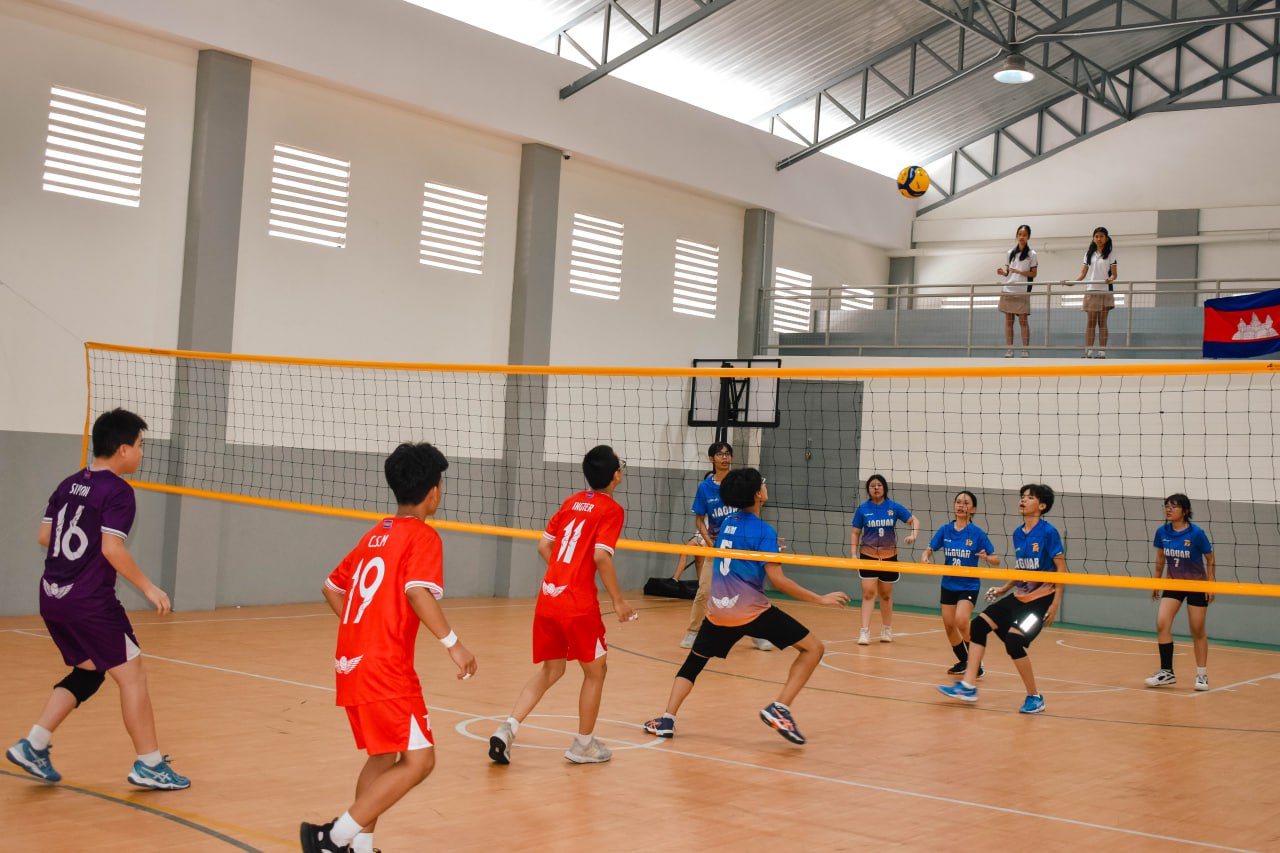
Personal, Social, Physical Education
The Personal, Social, Physical Education (PSPE) curriculum at TG International school covers a variety of topics related to personal development, social growth and physical activities. The curriculum is organised around these strands of learning: Self-Awareness, Social Interaction and Active Living. Where authentic opportunities arise, our PSPE curriculum makes interdisciplinary links with Cambridge Global Perspectives units of learning.

Personal, Social, Physical Education


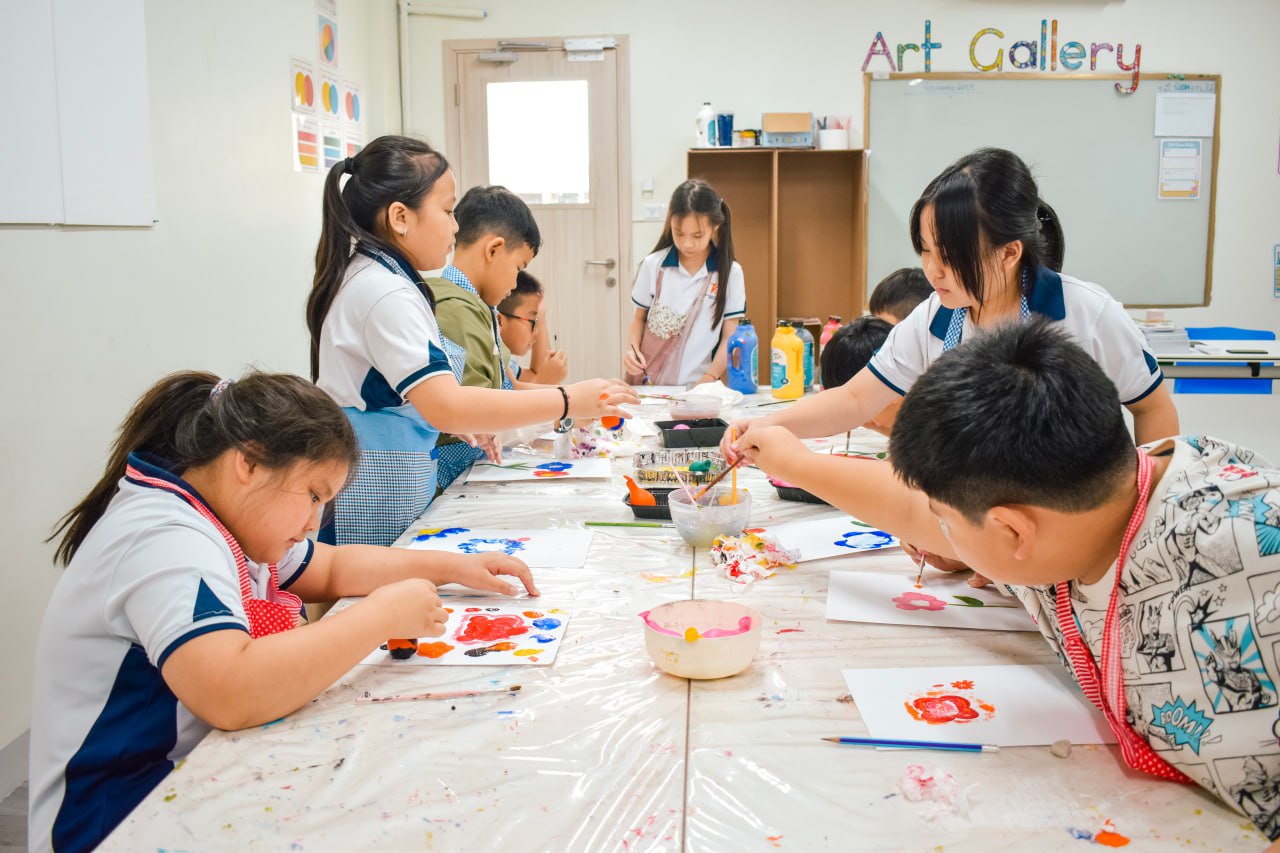
Art
Art at TG International School develops students’ appreciation and understanding that Art is a powerful mode of communication through which students explore and construct a sense of self and develop an understanding of the world around them. Art provides students with a range of opportunities and means to respond to their experiences and engage with historical, social and cultural perspectives. The students are stimulated to think and to articulate their thoughts in new ways and through a variety of media and technologies. Art develops the whole child, promotes creativity, critical problem-solving skills and social interaction. The curriculum is organised around the learning strands of Art Techniques, Appreciation, and Expression. Where authentic opportunities arise, our Art curriculum makes interdisciplinary links with Cambridge Global Perspectives units of learning.

Art


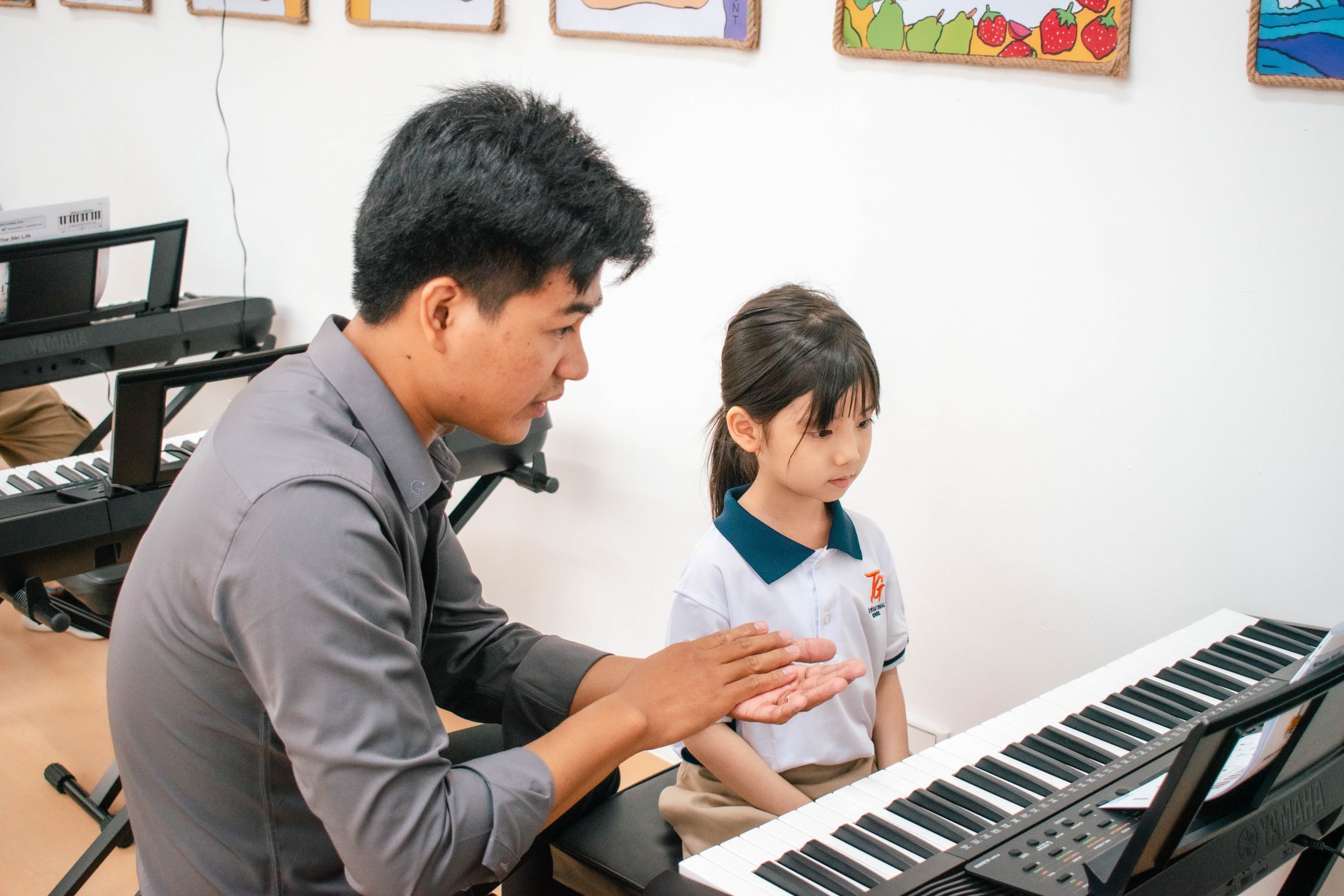
Music
The Music curriculum is organised around the learning strands of Music Theory, Appreciation, and Performance. Where authentic opportunities arise, our Music curriculum makes interdisciplinary links with Cambridge Global Perspectives units of learning. We hope to inspire students to see music as an important common language through which humans communicate our emotions, ideas, identity, rituals and culture. Through our music education, we hope our students will see more similarities between people instead of differences.

Music


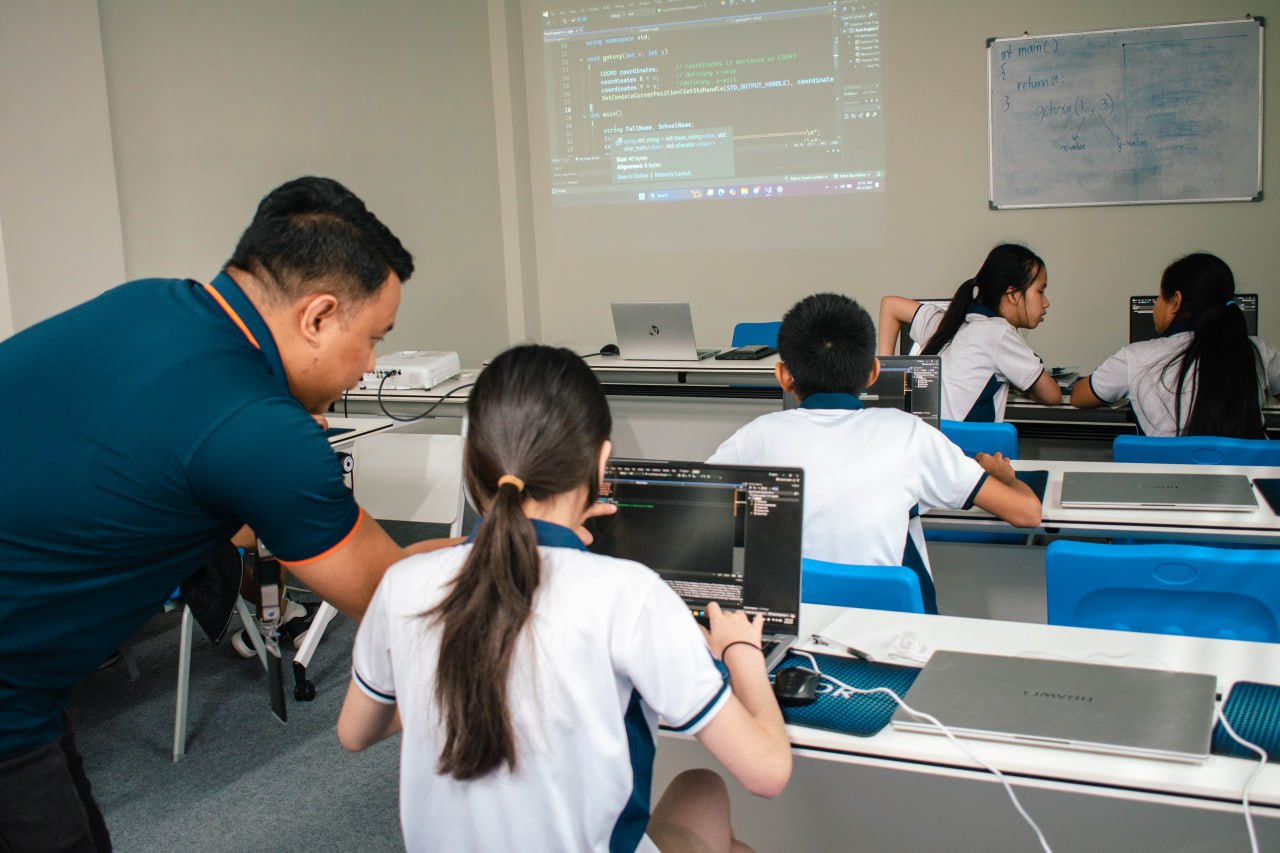
Technology
At TG International School, we believe that technology is an integral tool that supports learning in the classroom, including Cambridge Global Perspectives units of learning. We hope to develop students’ digital literacy and to become skillful at using technology for communication – to access information, collect and record information, analyse data to synthesise information, and then to present information, thinking about the purpose and the audience. Internet safety and cyber etiquette are also important knowledge and skills we want to impart to students.

Technology


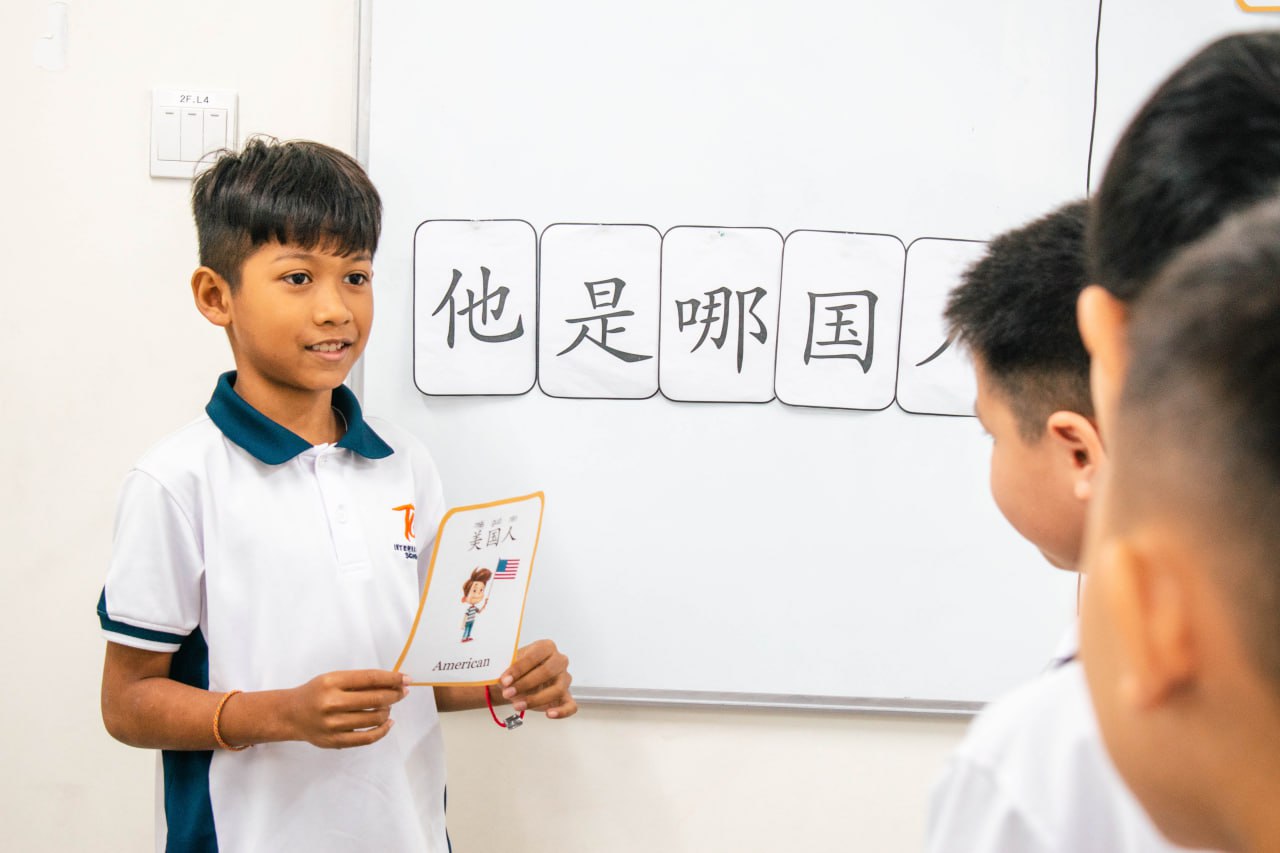
Languages
At TG International school we value students’ language development. Every student can choose one of the following languages options, in addition to the Cambridge Primary English lessons:
- Mandarin Foreign Language
- Additional English Language
Growth Charting Strategies
At TG International school, charting your child’s growth journey is one of our priorities. Assessment for improvement and growth is therefore an integral part of teaching and learning. The school monitors every child’s progress using both formative and summative assessment practices, aligned to Cambridge International assessment and evaluation benchmarks.
Formative assessment modes such as quizzes and performance tasks provide teachers with important feedback that they can use for improving and customising instruction and learning
A more formal assessment mode such as paper and pencil tests are used to evaluate every child’s learning at the end of an instructional chapter or unit
Parents are also invited to the parent-teacher conferences as they are a key support and motivation in the growth journey of their child.

Languages
CAMBRIDGE CURRICULUM
Global Perspectives

At each year level, students are engaged in different themes designed to appeal to their interests and help them to learn more about the world around them. These themes help children to see how subjects such as Art, Geography, History, ICT and Computing, Music, PE, Science, Society, Technology, Language and Mathematics are both independent and interdependent. This enables them to see the big picture of their learning, make connections across different subjects, and see topics and issues in the world from multiple perspectives.
Goals

Subject Learning Goals


Subject Learning Goals
The subject goals cover the knowledge, skills and understanding that students should learn in Science, History, Geography, ICT and Computing, Technology, Music, Art, PE, Society, International, Language and Mathematics. These subjects are built into the different thematic units of work, where they work independently yet interdependently with each other so that children can talk about their learning through multiple perspectives.


Personal Learning Goals


Personal Learning Goals
The personal goals refer to those individual qualities and dispositions we believe students will find essential in the 21st century. There are eight IPC personal goals: Adaptability, Communication, Cooperation, Enquiry, Morality, Resilience, Respect and Thoughtfulness. Opportunities to experience and practice these very specific dispositions are built into the learning tasks within each unit of work. In addition, we aim to help students.


International Learning Goals


International Learning Goals
The IPC is unique in defining learning goals that help young students begin the move towards an increasingly sophisticated national, international, global and intercultural perspective. Each IPC unit has embedded within it, learning-focused activities that help students gain an increasing sense of themselves, their community and the world around them, whilst developing the capacity to take action and to make a difference.

ASSESSMENT
Assessment Strategies
At TG International School, we find assessment an integral part of teaching and learning. That is why we closely monitor our student progress using both formative and summative assessment practices.
• Formative assessment – provides teachers with quick feedback that they can use for driving instruction and learning
• Summative assessment – evaluates every student’s learning at the end of an instructional chapter or unit
Both students and teachers are actively involved in these assessments. Also, TG International School ensures that every student’s social and academic progress are valued equally.
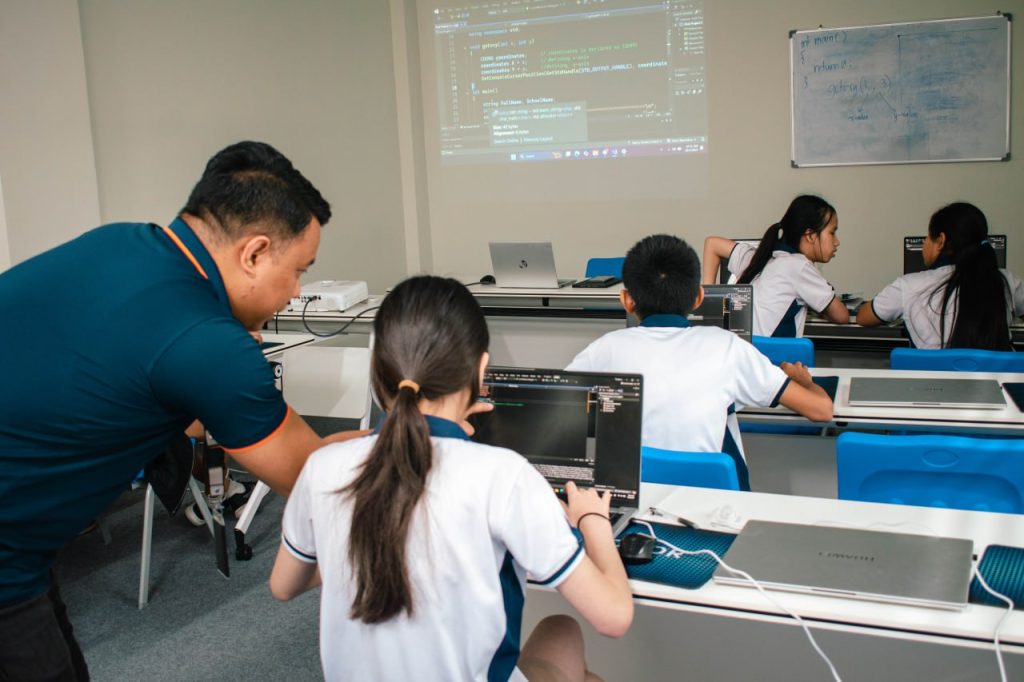
Assessment Strategies And Tools Include, But Not Limited To:
- Observations
- Self-Assessments
- Peer Assessments
- Student Reflection
- Open-Ended Tasks
- Performance Tasks
- Parent-Student-Teacher Conference
